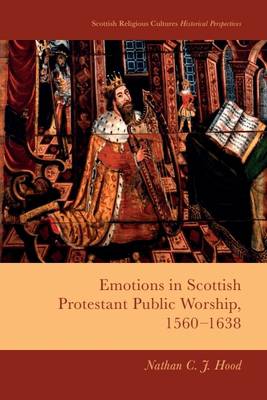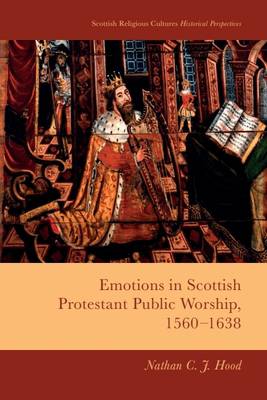
- Afhalen na 1 uur in een winkel met voorraad
- Gratis thuislevering in België vanaf € 30
- Ruim aanbod met 7 miljoen producten
- Afhalen na 1 uur in een winkel met voorraad
- Gratis thuislevering in België vanaf € 30
- Ruim aanbod met 7 miljoen producten
Zoeken
Omschrijving
This book explores the affective dimension of Scottish Protestant public worship in early modern Scotland. It examines how the intensely emotional character of Scottish Puritan or godly piety was reflective of the emotional norms many Scots had to navigate in congregational worship following the Protestant Reformation. Using historiographical approaches developed within the history of emotions discipline, the book argues that in corporate rituals such as prayer, preaching, public repentance, fasting and the Lord's Supper, Scottish Protestants were expected to experience and express a variety of feelings that were associated with the cycle of conversion. These prescribed emotions were seen as integral to the efficacy of the liturgy, playing a vital role in the individual's, community's and nation's encounter with God. The book argues that these standards of emotion were informed by medieval, secular and protestant sources and new perspectives emerge on their profound impact upon the major political events that shaped seventeenth century Scotland.
Specificaties
Betrokkenen
- Auteur(s):
- Uitgeverij:
Inhoud
- Aantal bladzijden:
- 296
- Taal:
- Engels
- Reeks:
Eigenschappen
- Productcode (EAN):
- 9781399507394
- Verschijningsdatum:
- 31/10/2025
- Uitvoering:
- Hardcover
- Formaat:
- Genaaid
- Afmetingen:
- 156 mm x 234 mm
- Gewicht:
- 594 g

Alleen bij Standaard Boekhandel
+ 386 punten op je klantenkaart van Standaard Boekhandel
Beoordelingen
We publiceren alleen reviews die voldoen aan de voorwaarden voor reviews. Bekijk onze voorwaarden voor reviews.








